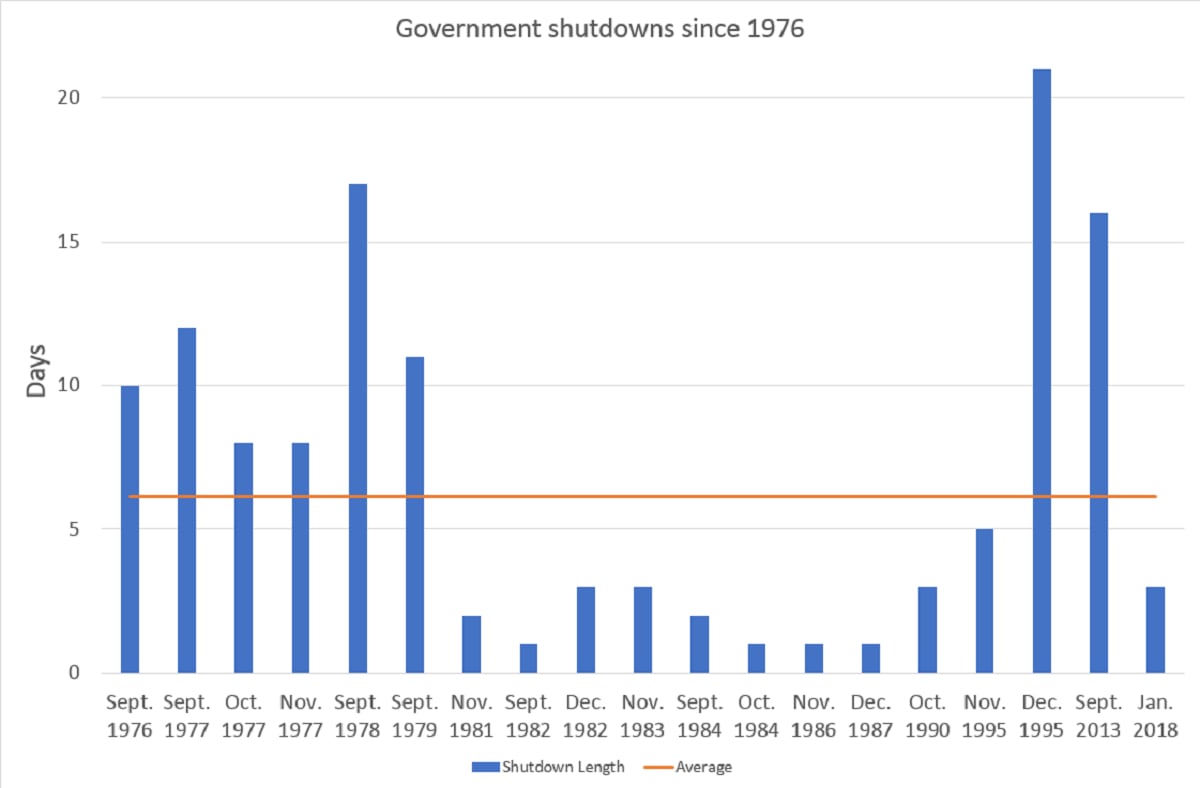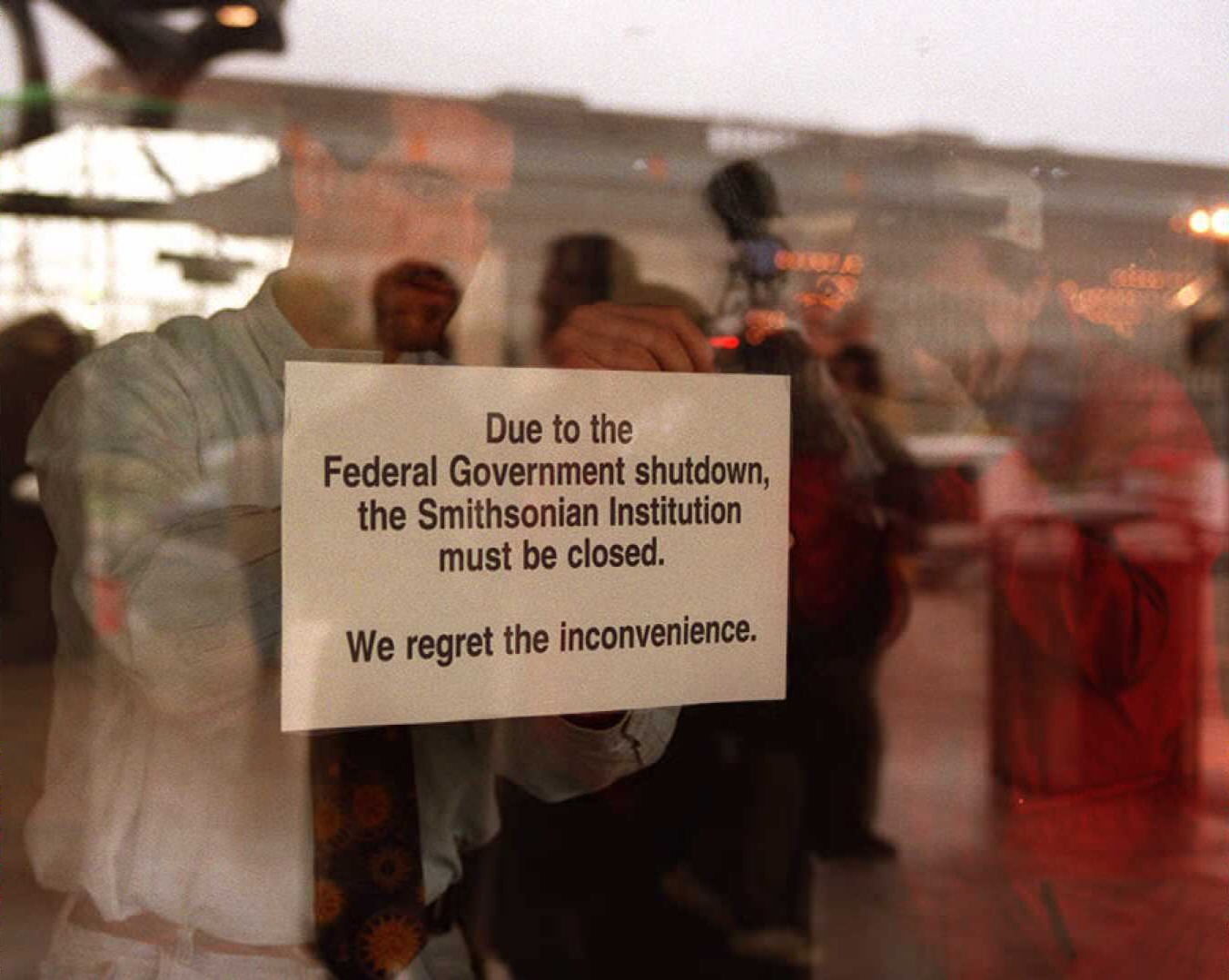Short-term shutdowns still cause significant detriment to federal workers, according to leadership from federal employee organizations, who were critical of lawmakers’ decision to play politics with government operations.
“Even though the shutdown lasted just three days, it was long enough to cause a massive disruption to our government operations and widespread confusion for federal workers, federal agencies, and the public,” said American Federation of Government Employees National President J. David Cox Sr.
Compared with the country’s most recent shutdowns in 2013 and 1995, the 2018 shutdown was relatively short: three days compared to weeks. Its occurrence over a weekend also limited the number of work days impacted.

The 2018 shutdown was also shorter than the government average of six days established by the pattern of longer shutdowns in the mid- to late-1970s and shorter ones throughout the 1980s. Shutdowns are also significantly less common than they were in those decades.
Despite the fact that the 2018 numbers compare favorably against other shutdowns, Richard G. Thissen, national president of the National Active and Retired Federal Employees Association, said that it still posed a major problem for federal employees and agencies.
“While some have called this shutdown ‘political theater’ and less consequential than past shutdowns, for federal employees it was anything but,” said Thissen.
“Hundreds of thousands of federal employees were hard at work the last three days while others were forced to stay home — all of them worried when they would receive their next paycheck. We cannot allow congressional impasse on any issue to dictate when our nation’s public servants are able to serve our citizens.”
The shutdown, though short, has already delayed major projects, such as the testing of SpaceX’s Falcon Heavy rocket, which requires support from the U.S. Air Force.
A majority of Senate Democrats, along with a few Republicans, initially opposed the continuing resolution proposed on Friday, Jan. 19, 2018, because it did not address recipients of the Deferred Action for Childhood Arrivals (DACA) program and continued to kick the can down the road on long-term budgeting decisions.
However, most Senators later approved nearly identical legislation after Republican leadership promised to hear legislation addressing DACA and the continuing resolution was shortened to end on Feb. 8, 2018.
“None of this would have happened if lawmakers had done their job in the beginning and passed a federal budget on time. Instead most federal agencies are limping by on borrowed time, unable to start new projects, fill new positions, or focus on long-range projects. This counterproductive cycle of short-term continuing resolutions must end now,” said Cox.
“Lawmakers now have 17 days to pass a budget that will fund federal agencies through the rest of the fiscal year, which ends Sept. 30. I urge Congress and the administration to come to the table, resolve their differences, and pass a long-term budget so that federal employees can continue to do their jobs in service to our country.”
Though federal employees will still have to grapple with the difficulties caused by missing a day or two of work, Congress did opt to provide back pay for employees furloughed during the shutdown, meaning that paychecks received for that time period should still look the same.
“I do want to thank lawmakers for ensuring that federal employees who were impacted by the shutdown do not lose any pay,” said Cox.
“Federal employees and their families should not be forced to go without pay when they are not allowed to do their jobs because Congress cannot pass a funding measure. A special thanks goes to Senator Ben Cardin of Maryland and Congressmen Don Beyer and Rob Wittman of Virginia for first introducing the retroactive pay language in Congress.”
Thissen also applauded the choice to pay federal employees for the time they were unable to work.
Jessie Bur covers federal IT and management.
In Other News




